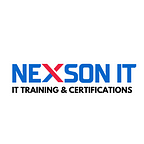What are DevOps Course and DevOps Lifecycle?
DevOps is a new way of working that improves value delivery for the customer and enables benefits for both development and operations
Definition: DevOps is a new approach to optimize and manage end-to-end service delivery and operations. It applies a set of principles to transform the entire software delivery lifecycle to introduce new practices enabled by technology
Note: If your looking for training my option is Nexson IT Academy - Hyderabad.
Software Delivery Lifecycle
New DevOps practices:
- Continuous Integration
- Continuous Testing
- Continuous Delivery
- Continuous Operations
DevOps principles
- Culture of shared responsibility and collaboration
- End-to-end ownership of services
- Multi-disciplinary teams
- Incremental value delivery
- Flow optimization in the delivery process
- Automate (almost) everything
- Measurement of everything
- Continuous improvement
Benefits:
- Increases the frequency and quality of deployments and releases
- Improves innovation and risk-taking
- Realizes faster time to market
- Improves solution quality and operational reliability
- Improves the Mean Time to Recover (MTTR)
The History of DevOps
DevOps is becoming the norm in software delivery and is increasingly being adopted & matured across enterprises, becoming the new best practice
DevOps practices
DevOps practices apply continuous automation cycles throughout software development and operations processes
Why do we need DevOps?
Traditional function separation for Development and Operations:
Prior to DevOps change release frequency was low, Development and Operations worked separately to serve business demands, having completely opposite mindsets
DevOps unifies the mindset of Development and Operations:
Today business wants to release on demand. With DevOps, both functions continuously collaborate to align business demands within the software delivery lifecycle
Where is DevOps applicable?
Indicators for DevOps Applicability:
Several indicators help to determine if DevOps is applicable for your organization
What is needed for DevOps to work?
DevOps dimensions
The DevOps operating model is structured along with People, Process, and Technology, each dimension is necessary for successful DevOps
DevOps Organization & Culture
The principles of the DevOps way of working have extensive implications on the organization structure, as well as on the culture of the workforce
DevOps principles are the starting point for an organization structure
Based on DevOps principles, an organization allocates resources by service instead of functions to enable end-to-end ownership and increase agility within teams
Key DevOps roles and responsibilities
Several key roles should be represented in a cross-functional DevOps team; a team member with a T-shaped profile can fulfill more than one role
Different team topologies
No one-size-fits-all approach, DevOps can be implemented in many different organizational and team setups
The mindset of a DevOps team member
DevOps team members foster certain cultural aspects contributing to the end-to-end ownership of services
Factors influencing DevOps organization design
DevOps theory doesn’t always apply to practice, client specific factors need to be taken into account for an applicable and effective DevOps organization design
The DevOps model is significantly different from the traditional IT model:
DevOps integrates the application lifecycle into an end-to-end, iterative process
DevOps leverages technologies to automate the software delivery process:
While extending agile, DevOps optimizes the software delivery process by leveraging CI/CD which automatically promotes the developer’s source code to operational solutions
If you looking for more content about DevOps comment here.
All The Best Thank You.
